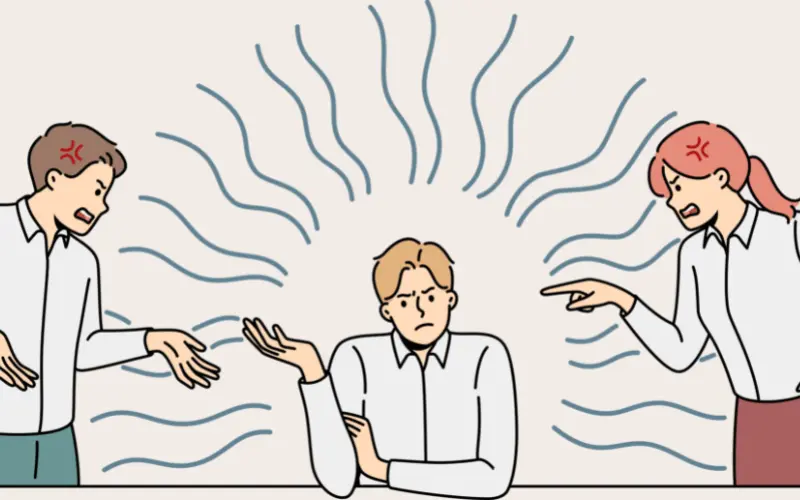Parenting is one of the most rewarding yet challenging roles we undertake, but what happens when we unknowingly fall into bad parenting habits? Imagine this: a recent study found that children exposed to inconsistent discipline are 50% more likely to struggle academically and socially (Source). As a new parent, educator, or concerned guardian, recognizing and addressing these harmful behaviors is crucial. In this blog, we’ll explore 25 examples of bad parenting, understand their long-term effects, and provide practical tips for improvement to ensure your child thrives.
25 Examples of Bad Parenting
Physical Abuse
- Harsh physical punishment or abuse: This can lead to emotional and psychological issues, such as low self-esteem, anxiety, depression, and even post-traumatic stress disorder (PTSD). In 2022, 17% of child abuse victims were physically abused.
- Rough handling or exposing children to domestic violence: This can cause severe emotional trauma and behavioral issues. Approximately 42.1% of children who died from abuse suffered physical abuse.
Emotional Abuse
- Belittling, name-calling, or excessive criticism: Emotional abuse can have long-lasting effects on a child’s self-worth, confidence, and ability to form healthy relationships. Emotional abuse affects 6.8% of child maltreatment victims.
- Withdrawing affection as punishment: This can lead to emotional detachment and difficulties in forming healthy relationships.
- Shaming or humiliating the child: This can result in low self-esteem and social withdrawal.
Neglect
- Leaving children unsupervised for extended periods: Neglect can hinder a child’s social, emotional, and cognitive development. Neglect is the most common form of child abuse, affecting 74.3% of victims.
- Failing to provide emotional support or nurturing: This can lead to poor academic performance and behavioral problems.
- Ignoring a child’s basic needs (food, shelter, medical care): Neglect can result in physical health issues and emotional instability.
Unrealistic Expectations
- Pressuring children to achieve excessively: This can lead to anxiety, low self-esteem, and a fear of failure.
- Comparing children to others or favoring one child over another: This can cause resentment and low self-esteem.
- Forcing children to grow up too quickly or take on adult responsibilities: This can hinder emotional development and lead to stress.
Inconsistent Discipline
- Erratic enforcement of rules or consequences: Inconsistent discipline can lead to confusion and behavioral problems. Inconsistent discipline is associated with early behavior problems and externalizing disorders.
- Overly permissive parenting or lack of boundaries: This can result in a lack of understanding of boundaries and behavioral issues.
- Harsh or rigid discipline without explanation: This can cause fear and resentment in children.
Lack of Engagement
- Not spending quality time with children: A lack of engagement can hinder a child’s emotional and social development.
- Failing to support a child’s interests or individuality: This can lead to low self-esteem and a lack of motivation.
- Lack of open communication or emotional connection: This can result in emotional detachment and difficulties in forming relationships.
Negative Role Modeling
- Substance abuse or addiction in the presence of children: This can lead to substance abuse issues and behavioral problems in children. In 2019, the percentage of child maltreatment victims with caregivers who abused substances increased.
- Displaying aggressive behavior or poor coping mechanisms: This can result in children developing similar negative behaviors.
- Exposing children to inappropriate content or activities: This can lead to emotional and psychological issues.
Overprotection
- Helicopter parenting or excessive control: Overprotection can hinder a child’s ability to develop independence and decision-making skills. Overprotective parenting is associated with higher levels of anxiety and depression in children.
- Preventing children from taking age-appropriate risks or making decisions: This can lead to anxiety and low self-esteem.
- Invading a child’s privacy or lack of respect for boundaries: This can result in emotional detachment and a lack of trust.
Favoritism and Inequality
- Favoring one child over another or unequal treatment of siblings: This can cause resentment and low self-esteem among siblings.
- Creating sibling rivalry or pitting children against each other: This can lead to long-term relationship issues and emotional instability.
The Long-Term Effects of Bad Parenting
The long-term effects of bad parenting can be far-reaching and profound. Children who experience negative parenting practices are at a higher risk for:
- Emotional and Psychological Issues: Depression, anxiety, and low self-esteem. About 80% of 21-year-olds who were abused as children meet the criteria for at least one psychological disorder.
- Behavioral Problems: Aggression, substance abuse, and criminal behavior.Abused children are approximately 9 times more likely to become involved in criminal activity.
- Relationship Difficulties: Challenges in forming and maintaining healthy relationships.
- Academic and Professional Struggles: Poor academic performance and challenges in professional life.
- Perpetuation of Negative Cycles: Children of bad parents often become bad parents themselves. About 30% of abused and neglected children will later abuse their own children.
Children are great imitators, so give them something great to imitate.
Anonymous
Conclusion
Parenting is a challenging journey, and no parent is perfect. However, by being aware of the examples of bad parenting practices and their potential long-term effects, parents can strive to create a nurturing and supportive environment for their children’s healthy development. Seeking support, resources, and professional help when needed can also aid in breaking the cycle of negative parenting patterns.
Remember, the greatest gift a parent can give their child is quality time, unconditional love, and a safe space to grow and thrive.
Sources
- American Psychological Association (APA) – Top Parenting Resources from Psychologists
- National Center for Biotechnology Information (NCBI) – Parents’ Professional Sources of Advice Regarding Child Discipline
- International Journal of Indian Psychology (IJIP) – Effect of Bad Parenting on Juvenile Delinquency: A Reflection
- NCBI – The Effect of Parenting and the Parent-Child Relationship on a Child’s Cognitive Development
- NSPCC Learning – Statistics on Child Abuse
- American Psychological Association (APA) – Helicopter Parenting May Negatively Affect Children’s Emotional Well-Being
- UAB News – What you need to know to prevent, spot signs of and report child abuse











